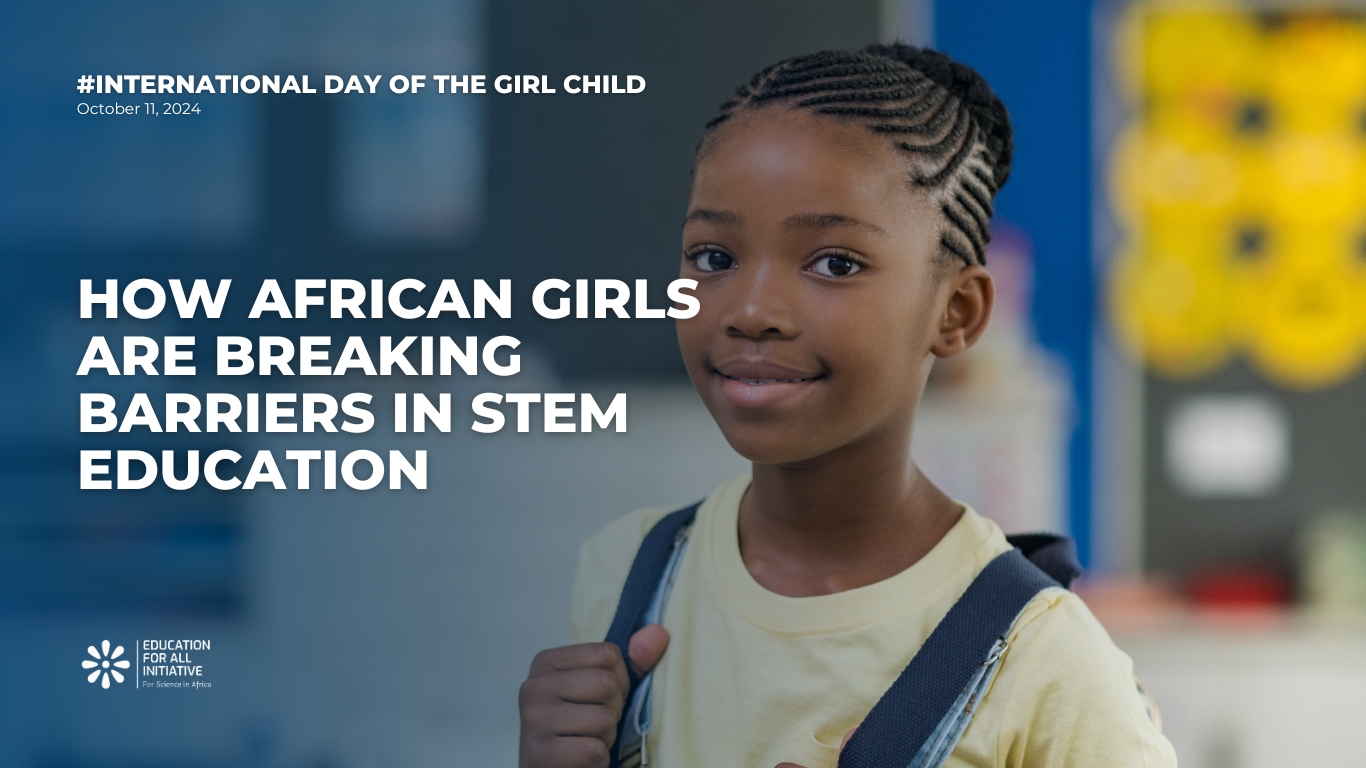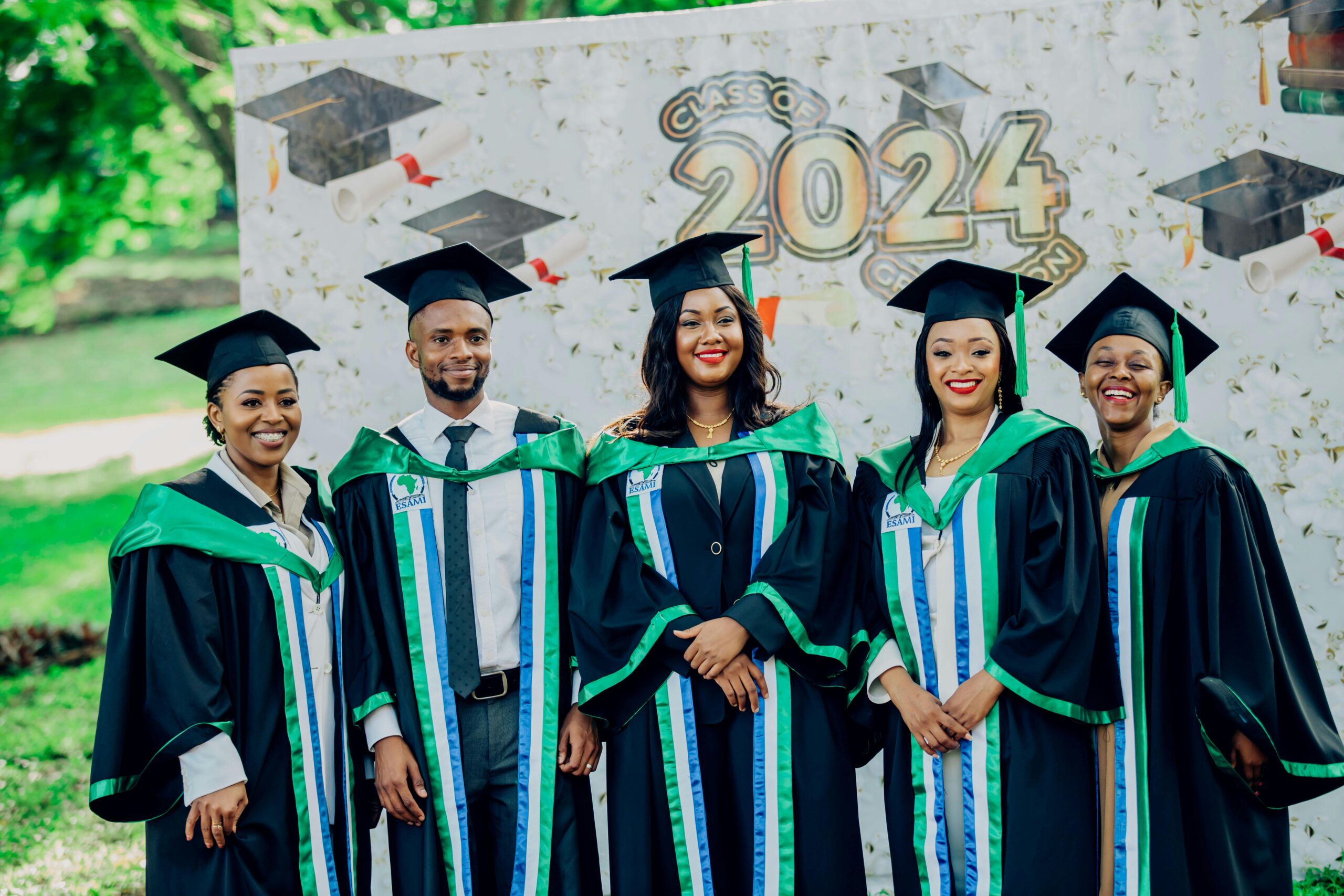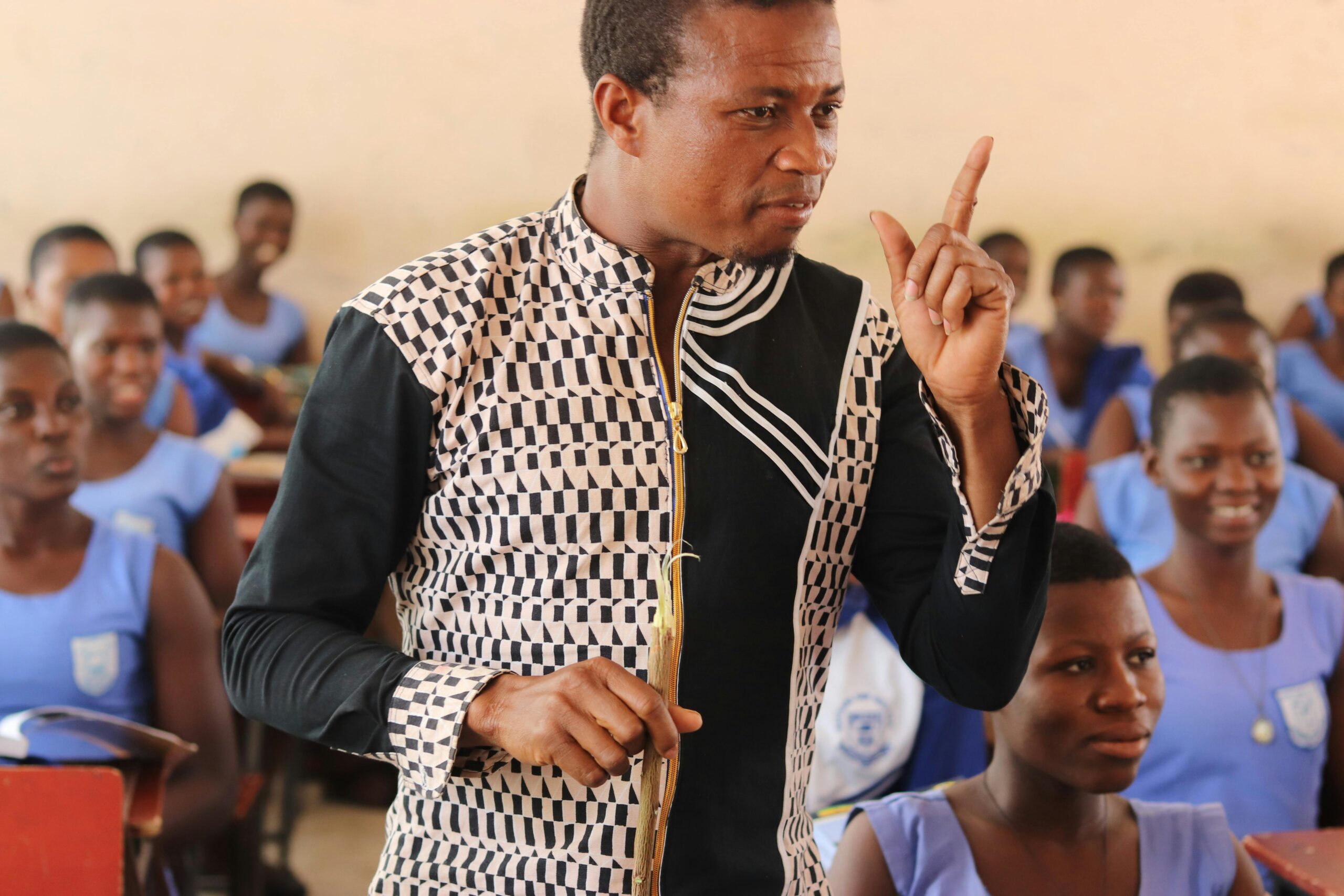On this International Day of the Girl Child, we celebrate the remarkable strides African girls are making in STEM (Science, Technology, Engineering, and Mathematics) education. With access to innovative programs, mentorship, and supportive policies, girls across the continent are breaking barriers and defying the odds in fields traditionally dominated by men. Their journey is transforming the narrative of girls in STEM, proving that talent knows no gender and inspiring a new generation of future scientists, engineers, and tech innovators who will shape Africa’s future. Let’s dive into how these young trailblazers are leading the charge in changing Africa’s STEM landscape!
1. Access to Education and Resources
Efforts to improve access to STEM education for African girls are gaining momentum, with various organizations and governments investing in resources and scholarships. Initiatives such as the African Union’s STEM Education for Girls aim to make quality science and technology education accessible to girls, particularly those from marginalized communities programs like UNESCO’s STEM and Gender Advancement (SAGA) are also pivotal in providing resources, funding, and support
2. Innovative STEM Programs and Competitions
Across the continent, innovative STEM programs targeting girls are making a difference. For instance, Tech Needs Girls in Ghana teaches young girls to code, helping them develop the skills necessary for careers in tech. Similarly, STEMbees focuses on empowering girls to pursue STEM careers through competitions, workshops, and mentorship. These initiatives create opportunities for girls to engage in hands-on learning and explore STEM careers in a fun, engaging way.
3. Mentorship and Role Models
One of the critical elements in encouraging girls to pursue STEM careers is mentorship. Programs such as Women in Tech Africa connect young girls with successful female professionals in tech and science, offering guidance, motivation, and inspiration. These role models are instrumental in showing girls that they, too, can succeed in traditionally male-dominated fields. Their stories of overcoming challenges inspire a new generation of African girls to break societal barriers.
4. Policy Advocacy and Government Support
Several African governments are prioritizing gender equality in STEM education by introducing policies and programs aimed at increasing female participation. Rwanda, for example, has introduced initiatives to close the gender gap in science and engineering programs, providing scholarships and support networks for girls in these fields. These policies create an environment where girls can thrive academically and professionally in STEM disciplines.
5. Breaking Cultural Norms
Cultural norms in many parts of Africa have long discouraged girls from pursuing STEM subjects, but this is changing. Advocacy groups like Girls Who Code and She Leads Africa are challenging these norms by showcasing the accomplishments of women in STEM. Through campaigns, workshops, and public discussions, they are helping to shift mindsets about what girls can achieve in STEM fields.
6. Digital Learning and EdTech
Technology is becoming an essential tool in expanding access to STEM education for girls. Mobile learning platforms and EdTech solutions are providing girls in rural areas with opportunities to learn science and technology from the comfort of their homes. Platforms like Eneza Education offer science lessons via mobile phones, ensuring that girls in remote areas are not left behind 8. In addition, Africa Code Week introduces coding to girls across the continent, further bridging the gap in STEM education.
7. Tackling Gender Gaps in Higher Education
African universities are making efforts to close the gender gap in STEM by providing financial aid, mentorship, and support systems for female students. Universities like the University of Cape Town have introduced scholarships and initiatives that encourage women to pursue degrees in science and engineering. These programs aim to build an inclusive environment where girls feel supported and encouraged to continue their studies.
8. Collaborative Efforts and Global Partnerships
Global partnerships between African governments, local organizations, and international institutions are amplifying the impact of STEM education initiatives for girls. Collaborations with organizations like the African Institute for Mathematical Sciences (AIMS) and UNICEF provide critical funding and expertise for programs designed to increase girls’ participation in STEM education.
Conclusion
As African girls continue to break barriers in STEM, they are not only changing the landscape of science and technology in their communities but also becoming role models for future generations. Through education, mentorship, and policy advocacy, they are showing that STEM is for everyone, and their success is helping to drive socio-economic progress across Africa. These girls are the future innovators, engineers, and scientists who will shape the continent’s development in the years to come.
References
1. African Union (AU). “STEM Education for Girls in Africa: Towards Inclusion, Equity, and Equality.” AU STEM Initiative Report. Accessed 2024. https://au.int
2. UNESCO. “SAGA: STEM and Gender Advancement – Increasing the Participation of Women and Girls in STEM.” UNESCO STEM Gender Report. Accessed 2024. https://unesco.org
3. Tech Needs Girls Ghana. “Coding for Girls – Tech Empowerment Initiative.” Tech Needs Girls. Accessed 2024. https://techneedsgirls.org
4. STEMbees. “Building the Next Generation of Women in STEM.” STEMbees Program. Accessed 2024. https://stembees.org
5. Women in Tech Africa. “Empowering Girls through Tech in Africa.” Women in Tech Africa. Accessed 2024. https://womenintechafrica.com
6. Rwanda Ministry of Education. “Rwanda’s Policy for Gender Inclusion in STEM Education.” Rwanda STEM Policy. Accessed 2024. https://mineduc.gov.rw
7. Girls Who Code. “African Programs for Girls in STEM.” Girls Who Code. Accessed 2024. https://girlswhocode.com
8. Eneza Education. “Mobile Learning for Rural African Girls.” Eneza Mobile Learning. Accessed 2024. https://enezaeducation.com
9. University of Cape Town. “UCT Initiatives Supporting Women in STEM.” University of Cape Town. Accessed 2024. https://uct.ac.za
10. African Institute for Mathematical Sciences (AIMS). “AIMS’ Initiatives for Women in STEM.” AIMS Women in STEM. Accessed 2024. https://aims.org
11. UNICEF. “STEM and Digital Learning Initiatives for Girls in Africa.” UNICEF Girls in STEM. Accessed 2024. https://unicef.org

SUBSCRIBE TO OUR NEWSLETTER TO GET MORE INFORMATION AND UPDATES ON STEM EDUCATION ACROSS THE GLOBE



